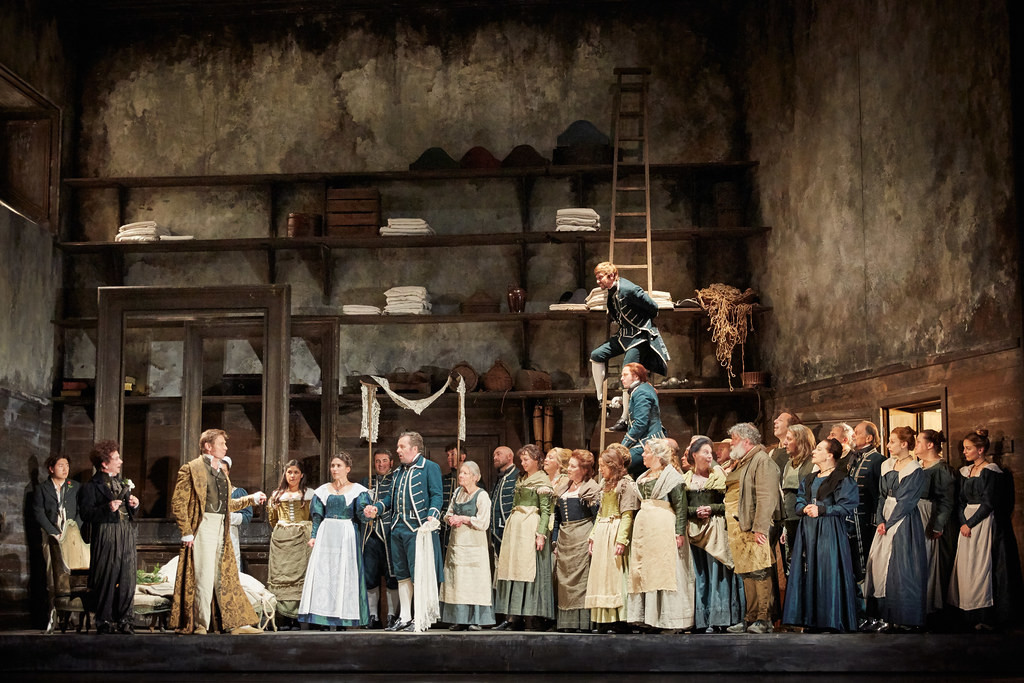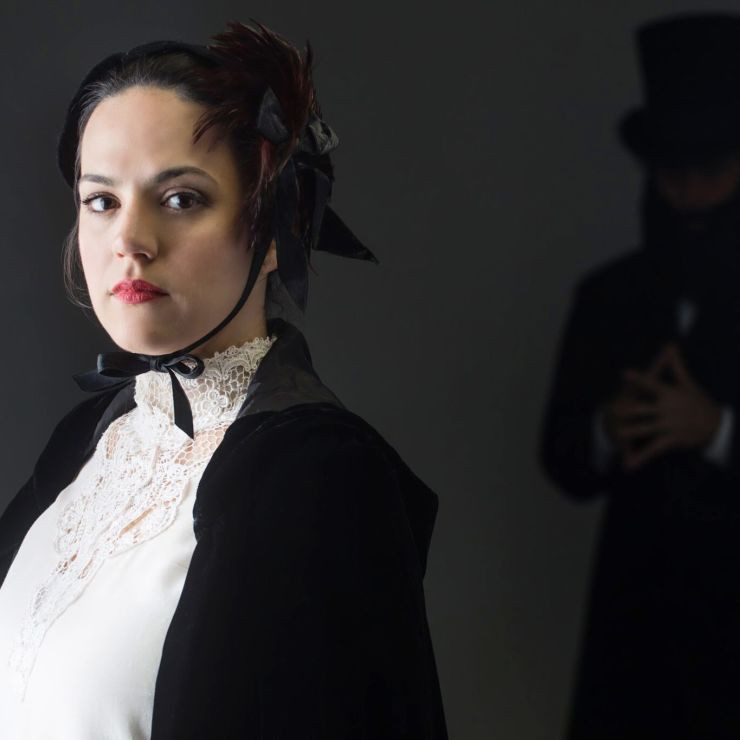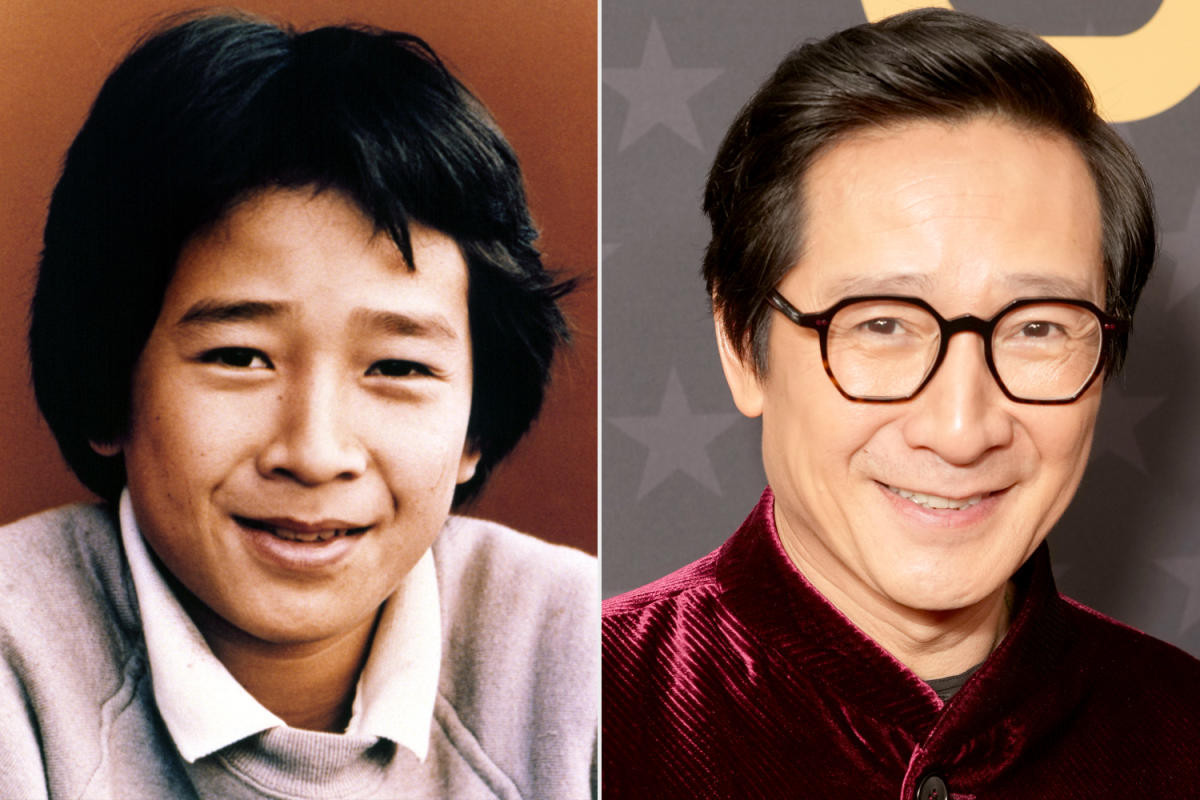The opera season has begun early. Whether it was wise of Covent Garden to launch more than a week sooner than is usual, while the Proms are still in full swing, is doubtful, to judge from cut-price seat offers on social media. But there was a pretty full (and up in the amphitheatre, very responsive) house for this lively revival of Figaro, and there was even a government arts minister in the theatre for the first night, something to celebrate.
In Tanya McCallin’s inventive sets, sliding seamlessly from one act to another, atmospherically lit by Paule Constable, McVicar fills Mozart’s score with buzzing action, transposing the setting to an 1830s Spanish castle in which the structures of society are under threat: from the opening moments, servants race around frenetically doing their menial jobs while trying to intrude on the life of the aristocracy, pressing at the doors as the emotional conflicts loom, clamouring for the end of the Count’s droit de seigneur (through which he hopes to seduce Susanna), while one poor maid collapses under a pile of bed linen. Characters enter early and lurk around the scene; there is a feeling of constantly seditious movement undermining ordered life.
The production has housed many casts since 2006, and this revival is notable for two striking house debuts. As Susanna, Ying Fang has a voice of absolute clarity and exactness, every note struck plumb in its centre, most touching in her final-act aria, though the physical side of the character, with plenty of horseplay and aggression, seems as yet less natural.
Ginger Costa-Jackson as Cherubino is lanky, funny, shambolic and finally drunk, but full of the genuine passion of youth: in “Voi che sapete”, he tears himself away from his obsession with the Countess to directly address us, the audience, as he deftly decorates the score.
The surrounding characters are well drawn, but not all as strongly sung: Luca Micheletti’s fine, blustery Figaro has more projection than Huw Montague Rendall’s wiry Count; Maria Bengtsson, a late replacement as the Countess, was wobbly to start with but acquired poise and power. Rebecca Evans was luxury casting as Marcellina, sadly not allowed her Act IV aria, while there was characterful support from Adrian Thompson as Basilio, Peter Kálmán as Bartolo, Isabela Díaz as a Barbarina genuinely enamoured of Cherubino, and the seemingly immortal Jeremy White as the bumbling gardener Antonio (has he been in every revival?).
In rep until Sept 15 (and in cinemas on Sept 10). Tickets: 020 7304 4000; rbo.org.uk
A Classic Mozart Opera for Modern Times
The opera season has begun early. Whether it was wise of Covent Garden to launch more than a week sooner than is usual, while the Proms are still in full swing, is doubtful, to judge from cut-price seat offers on social media. But there was a pretty full (and up in the amphitheatre, very responsive) house for this lively revival of Figaro, and there was even a government arts minister in the theatre for the first night, something to celebrate.
A Production with a Lasting Appeal
The issue of whether an 18-year old production of a core classic is the best demonstration of this company’s view of the future had better be put to one side for the moment; David McVicar’s ever-fresh production is evidently popular with everyone including the director himself, who has returned to supervise this revival.
A Vivid, Energetic Production
In Tanya McCallin’s inventive sets, sliding seamlessly from one act to another, atmospherically lit by Paule Constable, McVicar fills Mozart’s score with buzzing action, transposing the setting to an 1830s Spanish castle in which the structures of society are under threat: from the opening moments, servants race around frenetically doing their menial jobs while trying to intrude on the life of the aristocracy, pressing at the doors as the emotional conflicts loom, clamouring for the end of the Count’s droit de seigneur (through which he hopes to seduce Susanna), while one poor maid collapses under a pile of bed linen. Characters enter early and lurk around the scene; there is a feeling of constantly seditious movement undermining ordered life.
Captivating Debuts
The production has housed many casts since 2006, and this revival is notable for two striking house debuts. As Susanna, Ying Fang has a voice of absolute clarity and exactness, every note struck plumb in its centre, most touching in her final-act aria, though the physical side of the character, with plenty of horseplay and aggression, seems as yet less natural.
A Triumphant Performance
Ginger Costa-Jackson as Cherubino is lanky, funny, shambolic and finally drunk, but full of the genuine passion of youth: in “Voi che sapete”, he tears himself away from his obsession with the Countess to directly address us, the audience, as he deftly decorates the score.
A Strong Cast and a Lively Orchestra
The surrounding characters are well drawn, but not all as strongly sung: Luca Micheletti’s fine, blustery Figaro has more projection than Huw Montague Rendall’s wiry Count; Maria Bengtsson, a late replacement as the Countess, was wobbly to start with but acquired poise and power. Rebecca Evans was luxury casting as Marcellina, sadly not allowed her Act IV aria, while there was characterful support from Adrian Thompson as Basilio, Peter Kálmán as Bartolo, Isabela Díaz as a Barbarina genuinely enamoured of Cherubino, and the seemingly immortal Jeremy White as the bumbling gardener Antonio (has he been in every revival?).
Conductor Julia Jones accompanied securely, maintaining flowing tempos and bouncing rhythms, but was less adept in building up the tension of the great ensembles, so the finales of Acts II and IV just failed to acquire the excitement they need to crown this greatest of human comedies.
A Must-See Production
In rep until Sept 15 (and in cinemas on Sept 10). Tickets: 020 7304 4000; rbo.org.uk

















